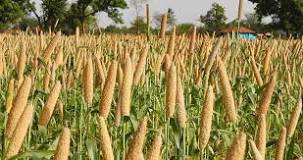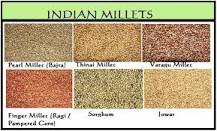Where To Buy Millet In South Africa 2024-2025

Millets are a group of highly variable small-seeded grasses, widely grown around the world as cereal crops or grains for fodder and human food.
Most species generally referred to as millets belong to the tribe Paniceae, but some millets also belong to various other taxa.
Where To Buy Millet In South Africa
Komati Foods
Address: 74 Lower Main Rd, Observatory, Cape Town, 7925, South Africa
Hours: Closed ⋅ Opens 8:30AM Tue
Phone: +27 21 448 2130
Woolworths Gordons Bay
Address: Mountain View Shopping Centre, Avondrus Street & Sir Lowry’s Pass Road, Winslow, Gordon’s Bay, 7151, South Africa
Hours: Closed ⋅ Opens 9AM Tue
Phone: +27 21 856 8500
Organic Zone Fruit and Veg
Address: 1 Main Rd &, Putter Rd, Lakeside, Cape Town, 7945, South Africa
Hours: Closed ⋅ Opens 9AM Tue
Phone: +27 21 788 3133
Woolworths East Rand Retail
Address: East Rand Retail Park, 113 North Rand Rd, Boksburg, Johannesburg, 1459, South Africa
Hours: Closed ⋅ Opens 8AM Tue
Phone: +27 11 897 4460.
Is millet grown in South Africa?
It is grown commercially in South Africa as forage. Pearl millet is planted on 14 million ha in Africa and 14 million ha in Asia.
Global production of its grain probably exceeds 10 million tons a year, to which India contributes nearly half. At least, 500 million people depend on pearl millet for their lives.
How does millet grow in South Africa?

Despite its drought resistance, pearl millet needs rainfall during the growing season but is sensitive to too much water during its flowering season.
It does well on light soils, low pH soils of 4,5 – 5,5 and even soils high in aluminium, but cannot stand waterlogged clay soils.
How long does it take for millet to grow?
60 days
Remember, it takes 60 days to grow millet to maturity (good seed formation). If it is not raining and weather allows, you can cut, bale and remove the hay within a week.
Which type of crop is millet?

Millets and the history
Millets are a group of highly variable small-seeded grasses, widely grown around the world as cereal crops or grains for human food and as fodder.